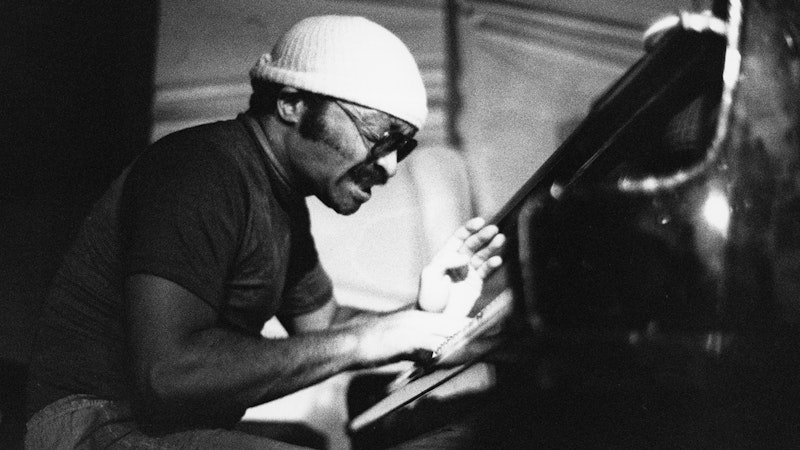Cecil Taylor: It's already happened. It's passed. If somebody wants to publish you, then they'll publish you.
Charles M. Schulz: Everything like that has always been somebody coming to me.
Taylor: So, now, what do we do?
Schulz: We had the radio on to a kind of a quiet-music station all day long, but I don't do that any more. Everybody is involved in licensing.
Taylor: I crossed out a whole bunch of people—I do think about them—and you know I have all of these things that I've been doing.
•••
Schulz: There's something about that that's very satisfying. That makes me feel wonderful.
Taylor: And of course that's what it is about, isn't it? And that must have been a trip.
Schulz: Oh, yeah. Then, of course, the war wiped me out for three years.
Taylor: But now that's all past because now the Japanese are building a super-skyscraper.
Schulz: I had these in an envelope, and it was drizzling that morning, and I got to the office about 8 o'clock, or whenever it was, and there was nobody there except the girl at the switchboard.
•••
Taylor: And what that really means is these few years that I have left here to really deal with a certain kind of upward-mobile bourgeoisie nonsense that entrapped a lot of—but anyway, the poetry saved my life, actually.
Schulz: The children's products just keep coming. It's become a problem for me. I’m learning to live with it.
Taylor: What happens is that you don't even think about it, and you work on it.
Schulz: [Laughter] Everything has to end sooner or later.
Taylor: It's rather scary, in a way.

